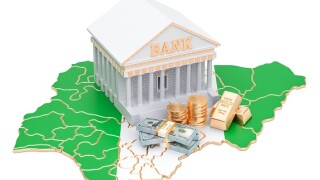Africa Bonds
-
Negotiations between the International Monetary Fund and some emerging market countries are yielding mixed results. While some sub-Saharan African sovereigns are making progress in their talks, Ukraine's long-running saga to unlock emergency funding has been unsuccessful so far.
-
-
-
Bond market participants fear that the G20 common framework for debt relief risks doing more harm than good. The warning came this week as confusion regarding the private sector’s role in Ethiopia’s proposed use of the framework dented government bonds across sub-Saharan Africa. The lack of clarity must be quickly rectified to avoid lasting contagion in African bond markets, market participants said. Mariam Meskin and Oliver West report.
-
Three African issuers entered debt markets this week and raised cash at competitive levels, despite a difficult external backdrop of debt relief in the region and continued US rates weakness.
-
Though the Chinese New Year on Friday is set to put a temporary hold on emerging market bond issuance, investors expect March to be a big month of supply as issuers take advantage of healthy credit conditions amid a period for high redemptions.
-
Investec Bank plc, the London and Johannesburg-listed subsidiary of South African banking group Investec, came to the euro bond market on Wednesday to raise debt.
-
Ecobank Nigeria, part of the pan-African banking group Ecobank Transnational, was set to raise dollar debt in the bond market on Wednesday, underscoring investors' appetite for exposure to sub-Saharan Africa.
-
Egypt and the Ivory Coast sold bonds on Monday that were heavily oversubscribed and offered little to no new issue concession. The trades, sources said, were evidence that volatility in global markets has had little impact on high yielding debt — though questions linger around investment grade EM issuance.
-
The Ivory Coast sought to raise some extra euro cash by tapping bonds in euros on Monday but, with two African sovereigns requesting debt restructuring support from the G20 over the last week, some market participants have begun to question the continent's borrowers.
-
The Arab Republic of Egypt entered the international bond market on Monday to sell a Reg A/144A multi-tranche dollar deal. Some participants are calling the 40 year tranche “ambitious”, as they say investor demand for duration has been weakening.








